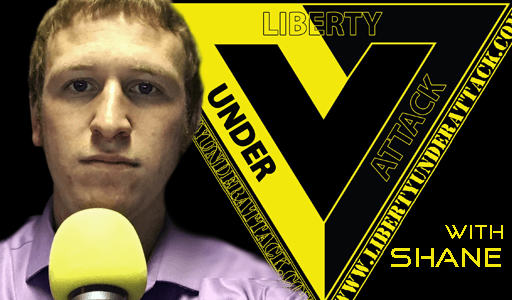A couple days ago, I put up a post titled, "Did the implementation of the income tax successfully abolish private property?" In the comments section, @joesal left a lengthy response that I found highly valuable for a number of reasons. I told him I would have to ponder it and get back to him; I have done that, but there might still be a couple points of confusion.
Anyways, here we go.
Statism relies heavily on the welfare state. If your life on paper looks like your below or close to the poverty level, the state will typically not engage you to extract wealth.
I would tend to agree with this assertion. The saying, "You can't squeeze blood from a stone," comes to mind.
If I remember correctly, the current poverty line here in the US is ~$22,000. If an individual makes less than that, they don't even have to file a tax return (worth double-checking at some point). That is one reason van nomadism is appealing to me; the average cost of the lifestyle is $500-$700/month which equates to $7,200/year. Obviously, that doesn't factor in breakdowns or emergencies, but the point is you can live like a king, while also not having any income tax liability.
Anyways, I agree. Next.
There is no measure of how efficient one persons life condition is as compared to another. That creates the opportunity for freedom folks to build wealth under the radar by utilizing efficiency. Since first realm systems rely on first realm efficiencies, this shouldn't be difficult to outpace.
The first two sentences are the parts that confused me initially and still does a little bit. If you could provide some clarification on those, I'd appreciate it. Regardless, I think I see your point anyways. Freedom pioneers can outpace the highly regulated, controlled First Realm and make quite a bit of money. Of course. I agree, as long as there are those courageous enough to DO.
The bigger problem I see in second realm is in the concept as a social construct. Social constructs are open to infiltration, as many of your videos explain and attempt to prevent.
I propose not using the realm model as much as the outpost model, where each person represents a outpost.
If second realm had any organizational characteristics, the state would invent something under the RICO Act to shut it down.
In a recent post, @joesal put together a really interesting graphic (below) that may elucidate these next few points for you.

Anyways, this is where things get really interesting, in my humble opinion. The Second Realm would definitely fall under a social construct and yes, any time you have groups of people getting together, infiltration is a possibility.
I still think there are ways to operate the social construct version of Second Realms though, and that is through nomadic lifestyles and the use of temporary autonomous zones. I'm more so leaning towards smaller numbers (like 10-20 individuals in a caravan) for security's sake, but then the long-awaited alternative economy would not develop, unless there was trade between Second Realms -- now we're back to infiltration again.
I think your point on the RICO Act is astute; as I've said before, obviously, the State and the servile society both are against our creation of Second Realms. They would sure as hell do their damnedest to shut them down...if they knew of their existence, that is.
It may take some time to analyze ultra anarchy methods of exchanging without organization. Similar to 'cold calling' there could be 'cold trading' that could provide enough of a decentralized market that would not be infiltrated.
There would be no records of what was traded or who was trading. Even the term 'trading' could be a problem, as the state has seen fit to be the regulator of trade.
Maybe call it gifting, or something outside legal terms of trading.
I'd be interested to hear more on "cold trading." I'm not quite sure what that could look like, unless it's something similar to the double-blind trading booths referenced in Second Realm: Book on Strategy. Or, maybe it's as simple as "trading" without keeping any records or books.
Good point on the term "trading," though.
Thankfully, in the digital realm, this issue seems to be nearing at least a workable solution. Decentralized digital currency exchanges are opening up and marketplaces like Open Bazaar exist.
The physical realm complicates things a little bit more, huh?
A few questions that I'd love to get your thoughts on:
1) When it comes to the S.R. Outposts in your opinion, what interaction (social/trading) would exist between them, if any?
2) Is your proposal of S.R. Outposts an attempt to further decentralize the effort in building Second Realms?
3) Digital Second Realms exist and have for some time. What impact does your mapping have on those, if any?
Thanks for reading everyone! @Joesal, would you be interested in coming onto the podcast to discuss this in-depth? I know I would thoroughly enjoy it!
